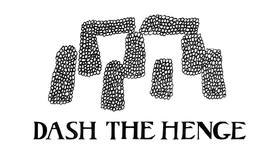
OZAN ATA CANANI
WARTE MEIN LAND, WARTE
Divided into two worlds Life? A long narrow path. Anything else? Yes: people and music. That's it, but still. It couldn't get any more narrow than for Ozan Ata Canani.
I've been asking myself all these years: what has he done to deserve that his art is so ignored? The young Ata was a prodigy on the bağlama, the Anatolian long- necked lute. So good that the great Aşik Mahzuni Şerif took him on tour. At that time Ata was just thirteen. Ata's father was suspicious and forbade him to play music.
In the late seventies, the young adult Ata wrote the first song cycle of Anatolian music in German. He wanted to arrive, live in Germany and communicate with the majority society. He wanted to make audible what was going wrong. The lament was only eclipsed by Ata's infectious optimism. His music is a journey that takes its listeners along. He was obviously ahead of his time, because no one wanted to publish these songs. They found no lobby. Not even the utopias of the German counterculture of the sixties did include the so-called guest workers and their art and culture - which is why Ata's parents' generation did not find a connection in the country. Most of them wanted to return home after their work was done. So what was the point of building bridges to the land of the oral cavity surveyors and the screaming foremen? The Anatolian people of Germany had created their own great structure of music dissemination. They were not dependent on the radio and the department stores. They had their own shops, everywhere. Unnoticed by the German music industry and the local media, companies like Türküola in Cologne or Uzelli in Frankfurt turned over millions of records every year. Türküola is the most successful independent label in post-war history. The records and cassettes, later CDs, went over the counters in their own shops, in greengrocers' markets and at electronics hawkers near railway stations.
The coexistence of music is a symbol of coexistence in society. Young Ata invented togetherness, but nothing more than a few small gestures jumped out. At least Ata appeared with a song on Alfred Biolek's television show. A VHS recording of the performance found its way to Youtube: It is Ata's song of the century, "Deutsche Freunde" (German Friends), and from today's perspective it seems like a prophecy: "And the children of these people are divided into two worlds - I am Ata and I ask you, where do we belong now?". In a condensate of words, it describes a state of feeling and mind that still characterises so much sixty years after the "guest worker recruitment agreement": Debates, scandals, discourses and the everyday life of many people.
"Deutsche Freunde" appeared on the fabulous compilation "Songs Of Gastarbeiter". That was in 2014. The initiators Bülent Kullukçu and Imran Ayata did not want to leave it at the droning Youtube clip. They convinced Ata to go into his studio with his old crew. Since then we know "Ata Abi" and all the other legendary songs. What nobody wanted to publish back then is now available: a poetic vision of the future - from the past.
In the Corona summer of 2020, the recordings were finally completed after more than forty years. Timeless songs whose wishes have still not been fulfilled. Make the best of it and play it in your stadyadium. Always in the name of humanity.

